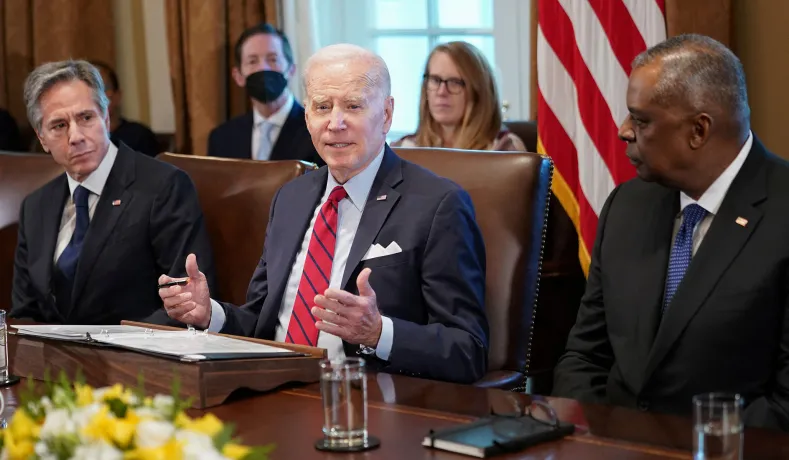The United States is considering a strong response to the recent drone attack in Jordan that targeted American service members. Officials suggest this response could be more forceful than previous strikes in Iraq and Syria. However, both the Pentagon and the White House are proceeding cautiously, careful not to reveal their plans prematurely.
President Biden is facing mounting pressure to effectively deter such attacks. Militants supported by Iran have targeted U.S. military installations over 160 times since October, prompting some Republican lawmakers to advocate for direct strikes inside Iran to send a clear message.
The main challenge for the Biden administration now is to formulate a response that addresses the threat without escalating tensions into a full-blown regional conflict. The recent drone attack represented the deadliest assault on U.S. forces since the withdrawal from Afghanistan. While officials anticipate a robust response, they are wary of conducting strikes within Iranian territory.
Secretary of State Antony Blinken has characterized the current situation in the Middle East as one of the most precarious in decades. He has hinted at the possibility of a multi-level and sustained response to the recent attack.
Potential courses of action include strikes on militant groups in Iraq or Syria, targeting the leadership of these militias, or even resorting to offensive cyberattacks. U.S. officials are careful not to divulge too much information about the attack’s origin, aiming to maintain an element of surprise in their response.
While Iran is widely believed to support these groups, there is currently no concrete evidence linking Iran directly to the recent attack. Iran has denied any involvement.
The attack follows a pattern observed in previous strikes, but this time it was more successful in inflicting harm on U.S. forces. It is believed that the drone managed to evade air defenses and cause confusion among American personnel.
The U.S. is committed to de-escalating tensions, but it also recognizes the need to respond appropriately to such provocations. However, there is concern that a proportional response may be perceived as weakness by Iran and its proxies.
Iran has invested heavily in its regional proxies as part of its efforts to expand its influence and exert pressure on the United States. These recent developments are seen as victories for Iran, as fears of further escalation persist within the U.S. administration.















































